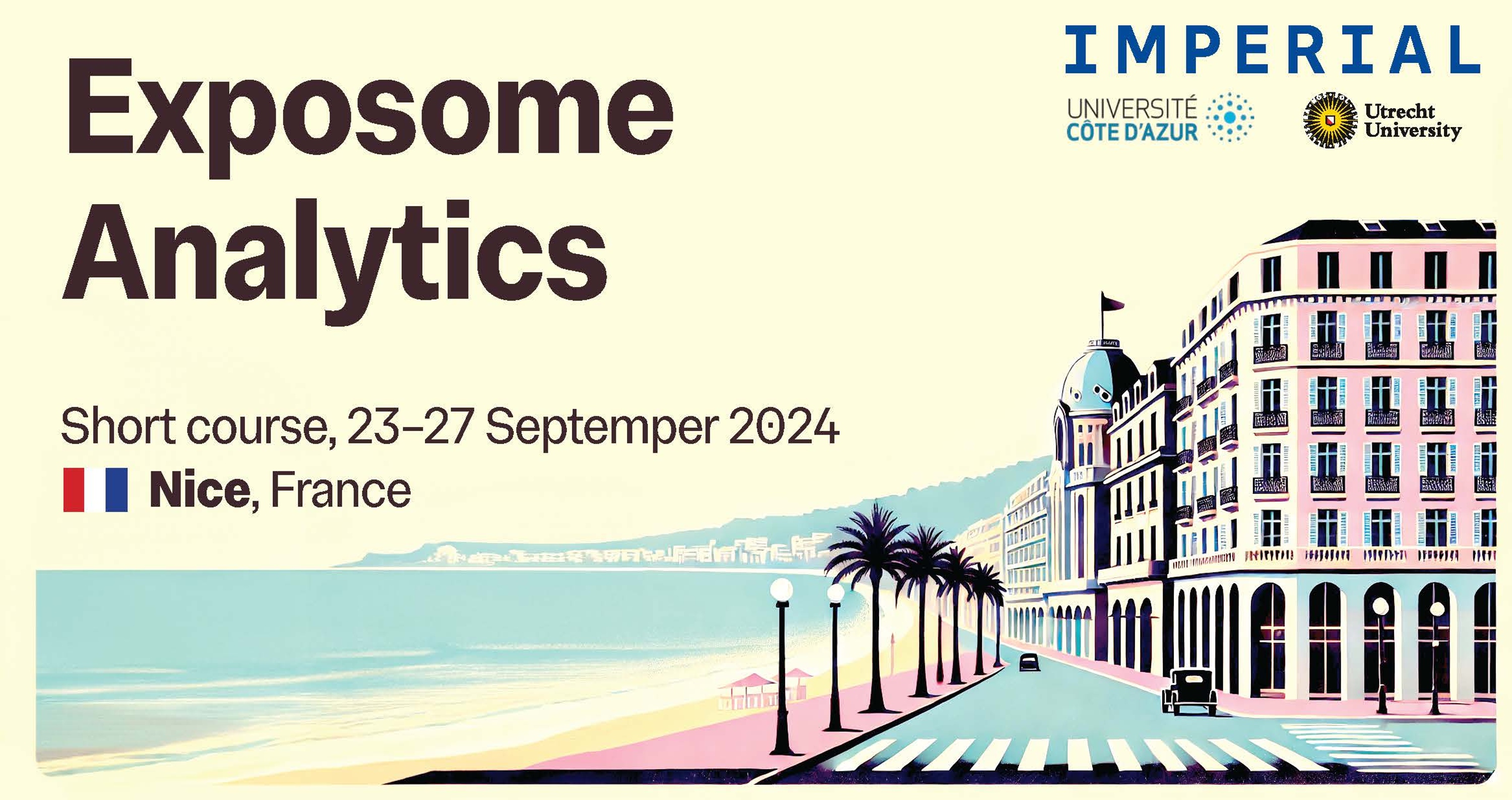
23 - 27 September 2024
Nice, France
Exposome Analytics will be held at Université Côte d’Azur from 23rd to 27th September 2024. Each day begins with lectures introducing theoretical concepts, followed by a seminar and a practical session to illustrate these concepts.
Learning outcomes
After Exposome Analytics, students will be:
- familiar with the concepts and challenges of the analysis of both external and internal exposome data
- able to implement integrative analysis of high-dimensional (blocks of) exposome data
- able to develop rigorous and reproducible research in the field of exposome analytics
- able to produce and interpret visualisations of results
- able to adopt a causal approach to analyse exposome data and charcaterise potential embodiement of external exposures.
Who would benefit
Exposome Analytics is designed for academics (students and researchers) and industry scientists (pharmaceuticals, insurance, food industries) with experience in analysing large and complex data sets. Ideal candidates include researchers seeking to deepen their knowledge in data analysis and integration for exposome research. Proficiency in basic statistics and R statistical software is desirable.
Participants should bring their own laptops.
There is space for 40 participants.
Keynote speakers
Professor Roel Vermuelen, Utrecht University
Professor Marc Chadeau-Hyam, Imperial College London
Professor Sonia Dagnino, University of Nice
Scientific programme
Monday - warm up
| Morning |
Introduction to Exposome analytics in practice | Professor Marc Chadeau-Hyam |
| Refresher on data analysis: Univariate, Dimensionality reduction, Feature selection Keynote: An integrative approach to lung cancer risk |
Professor Marc Chadeau-Hyam Professor Sonia Dagnino |
|
| Afternoon | Practical session: explore a real data set | Imperial College London team |
Monday - stability selection
| Morning |
Concept of stability selection: application to regression models (with/ without interaction) | Ruben Colindres |
| Other applications of stability selection: PLS; graphical models Keynote: Exposome analytics vs environmental epi – what’s new? |
Ruben Colindres & Rin Wada Professor Roel Vermeulen |
|
| Afternoon | Practical session: Stability selection on real data | Imperial College London team |
Wednesday - clustering
| Morning |
Definitions, algorithms, calibration | Thomas Wright & Rin Wada |
|
Consensus clustering and stability calibration: theory and applications |
Ruben Colindres & Rin Wada Professor Marc Chadeau-Hyam & Ruben Colindres |
|
| Afternoon | Practical session: worked examples of multiple clustering algorithms on simulated and real data; introduction to sparse clustering | Imperial College London team |
Thursday - casual modelling 1
| Morning |
Introduction to causal framework and mediation analyses | Ruben Colindres & Helene Colineaux |
|
Seminar: Causal modelling in practice |
|
|
| Afternoon | Practical session: worked examples on real data G computation | Imperial College London team |
Friday - casual modelling 2
| Morning |
Penalised structural causal modelling | Ruben Colindres |
|
Seminar: Causal discovery using deep learning and AI |
|
|
| Afternoon | Practical session: PSCM on the same data | Imperial College London team |
Course fees
Course fees include lunch, group dinner event and social events
Academics: £1,800
Industry: £2,500
Discount of £500 for EXPANSE and LongITools partners
Payments can be made by credit card or purchase order